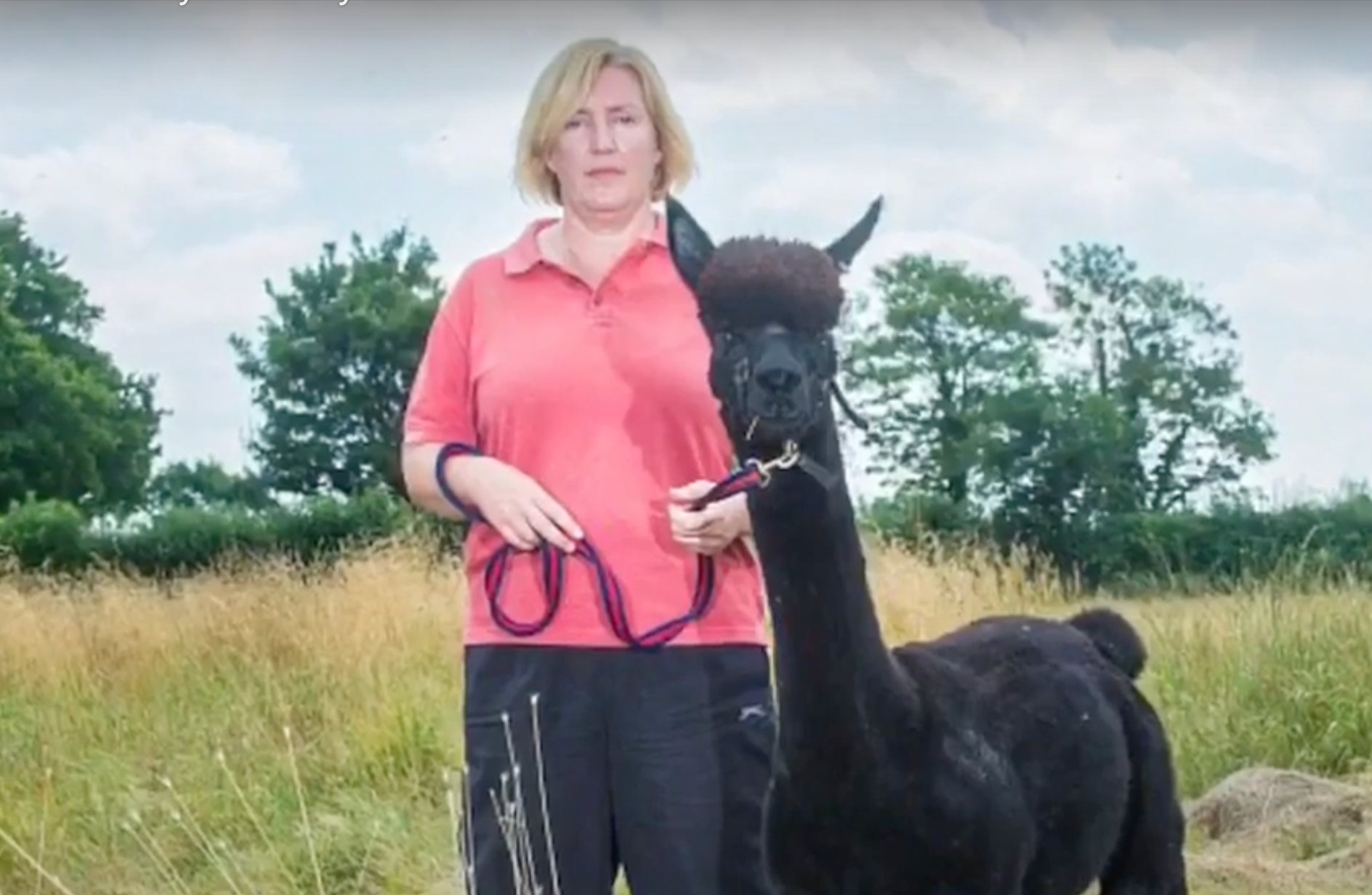Why was Geronimo the alpaca killed by government vets?
Animal was put down despite owner’s pleas
Geronimo the alpaca was taken from his Gloucestershire farm on Tuesday and killed following a four-year legal battle and campaign by the animal's owner.
The alpaca, brought to England from New Zealand in 2017, twice tested positive for bovine tuberculosis, a lung disease that can spread easily through animals. As a result, the government said the animal had to be put down.
Helen Macdonald, Geronimo's owner, disputed the test results and mounted several high court legal challenges against the government.
But each ended in failure and officials at the Department of Food, Environment and Rural Affairs (Defra) ordered him to be euthanised.
At around 11am on Tuesday, Defra staff removed Geronimo from Ms Macdonald's farm in Wickwar, near Britsol, and took him to be destroyed.
Speaking after the cull, chief veterinary officer Christine Middlemiss said it was a "terribly sad situation" but that the scientific advice had to be followed.
What are the rules on bovine tuberculosis?
Bovine tuberculosis is a respiratory disease prevalent in cattle and caused by the Mycobacterium bovis (M. bovis) bacteria.
According to the UK government’s Department for Environment, Food and Rural Affairs (Defra), transmission of the disease from one animal to another “can occur through nose to nose contact and also through contact with saliva, urine, faeces and milk”, a particular problem given that livestock are typically kept in close quarters to one another.
Any farmer or breeder who suspects one of their animals has contracted bovine TB is obliged to notify the Animal and Plant Health Agency via the Defra Rural Services Helpine. Not to do so is an offence.
The UK currently has a test and slaughter programme in place, whose basic principle, according to Public Health England, is “to identify infected cattle as early as possible and minimise the risk of the disease being transmitted to other cattle, wildlife and people”.
In Britain, herds in parts of the country with Low Risk Area status are tested every four years while those in High Risk or Edge Areas are tested annually.
The primary screening test for bovine TB in cattle is a skin test, properly known as a single intradermal comparative cervical tuberculin test, which is the international standard. It may also be supplemented by an interferon-gamma blood test to confirm the result.
Any animal that reacts to the skin test, indicating the presence of the disease, will be taken away and slaughtered and its owner compensated.
The surviving cattle in the herd are placed under movement restrictions, the host farm loses its Officially Tuberculosis-Free status until a clean bill of health can be assured and is required to thoroughly clean and disinfect its premises.
How widespread is the disease?
Bovine TB has been a problem for cattle farmers in the UK since at least the 1930s.
It has been tested for in Great Britain since 1950 and in Northern Ireland since 1959 and was relatively contained until the mid-1980s when cases of it spiked, after which it received a further boost in 2001 when the outbreak of Foot and Mouth disease caused testing to be suspended for 10 months, presenting it with an opportunity to thrive.
The disease is known to be especially persistent in southwestern England, central Wales and Northern Ireland, where it has jumped the species barrier, enabling its spread by other wild animals like badgers and deer or even house pets.
Earlier this month Ms Macdonald lost the last of her High Court battles to save Geronimo.
Ms Macdonald, a veterinary nurse, had insisted that the eight-year-old has been “completely fit and healthy” over the last two years and had not been infected with the disease, but to no avail.
A new warrant was subsequently issued for Geronimo’s death, stipulating a “kill window” of 30 days.

“The test used on Geronimo is highly specific, it is validated, it is reliable and the risk of a false positive is extremely low,” commented prime minister Boris Johnson’s official spokesperson, declining appeals for clemency on the animal’s behalf.
“A retest after two consecutive positive test results wouldn’t invalidate the previous tests. So, there’s no plans for any further tests.
“We recognise how distressing this clearly is for Ms Macdonald, as it is for farmers who have had to put cattle down - 27,000 had to be put down last year alone,” they added. “We need disease control measures to be applied consistently if we are able to tackle it and obviously that’s why we need to move ahead now.”
Join our commenting forum
Join thought-provoking conversations, follow other Independent readers and see their replies
Comments


Bookmark popover
Removed from bookmarks